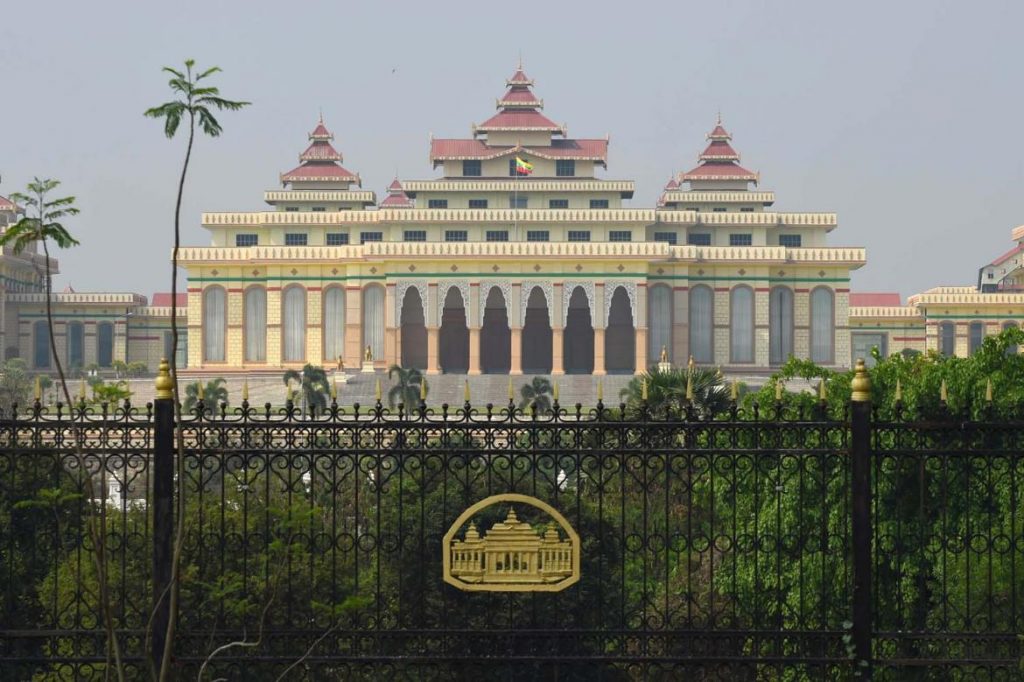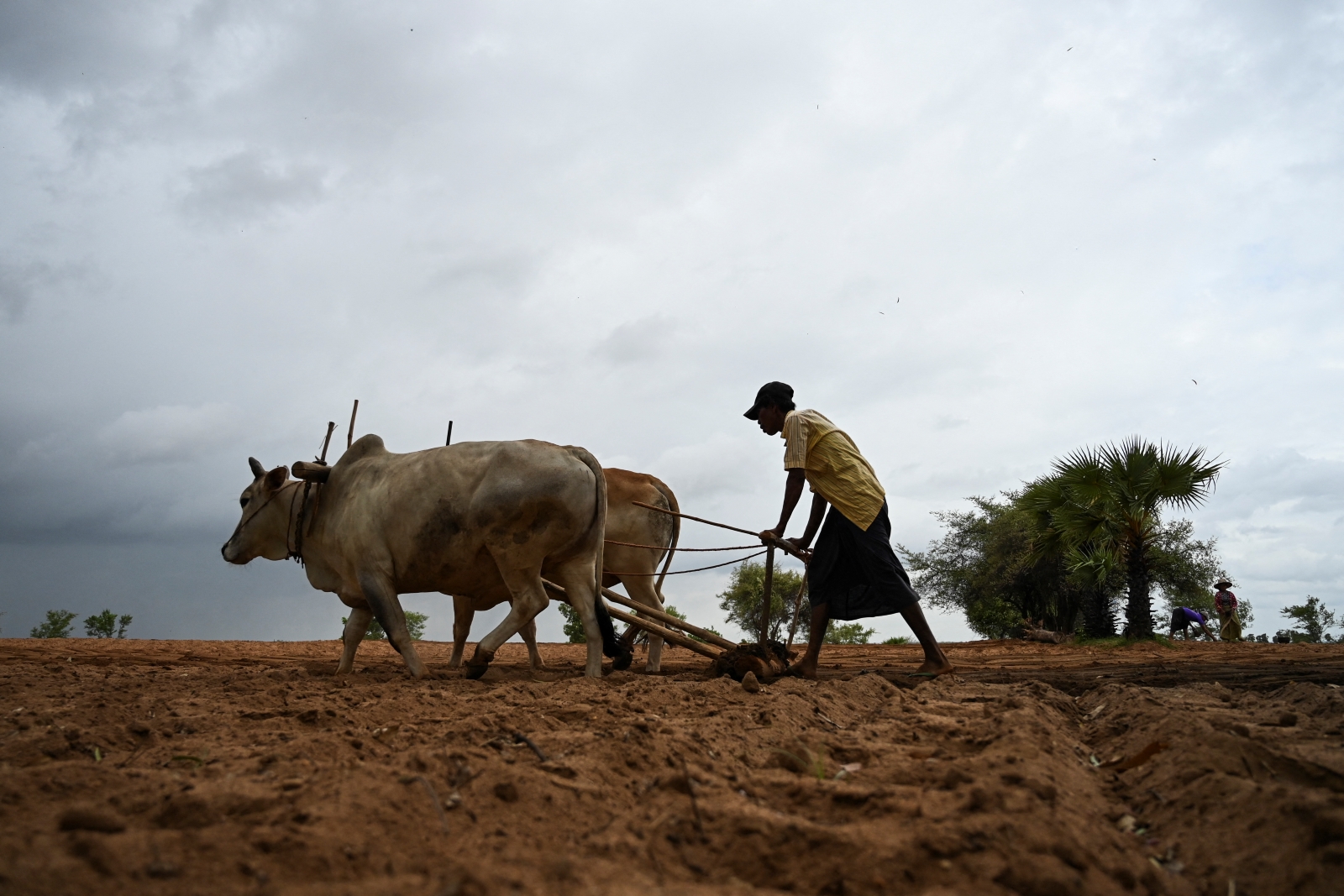Under military rule, Myanmar developed a system that was a fusion of cronyism and militarism, and as a result the economy has come to be dominated by corruption and rent seeking.
By NAING KO KO | FRONTIER
DESPITE THE reforms of recent years, Myanmar’s economy remains characterised by inefficiency, a lack of market-based competition, unethical and illegal behaviour, and monopolisation by oligarchs. Encouraged by a lack of trust and regulatory discrimination, the behaviour of the business community is largely based on rent-seeking and cronyism.
Under military rule, Myanmar developed what I call the “Nay Pyi Taw Consensus” (or the Burmese Way to Capitalism, if you like). It’s a fusion of cronyism and militarism. So rather than a capitalist system based on trust, integrity, professionalism and ethics, and regulated by capable institutions, we get corruption and rent seeking.
A consensus is a kind of unwritten agreement, a code of practices. In this case, it was constructed by the generals and cronies to protect their power and wealth and maintain control of executive and judicial power, even after the National League for Democracy took office.
The Nay Pyi Taw Consensus is the result of several factors, including weak regulators, an outmoded legal and regulatory framework, a desire to avoid the West’s economic sanctions and anti-money laundering regulatory actions, and a defensive foreign policy that saw it reliant on China for investment and protection.
Support more independent journalism like this. Sign up to be a Frontier member.
Economic reforms since 2011 have mostly focused on the macroeconomy, ignoring issues such as incentives, productivity and regulatory standards. As a result, the economy has shifted, but only from military-cronyism to crony-capitalism.
Domestically, Myanmar’s small and medium enterprises and start-ups are usually unable to compete with the incumbents who benefited from military rule, in part due to a lack of access to finance.
Meanwhile, foreign investors from the West remain reluctant to invest: consider that no American or British institutions were among the 13 foreign banks awarded licences for wholesale licences. In fact, they chose not to participate because of the regulatory and economic environment.
Myanmar’s problems are clear from many international indices: 145th out of 188 on UNDP’s Human Development Index; 135th out of 180 economies in the Heritage Foundation’s Economic Freedom Index; 131st out of 140 in the World Economic Forum’s Global Competitiveness Index; 111th out of 129 for economic transformation on the Bertelsmann Stiftung’s Transformation Index; 171st out of 190 countries on the World Bank’s Doing Business Index.
Daw Aung San Suu Kyi inherited the legacy of the Nay Pyi Taw Consensus when she assumed office in March 2016. However, the state counsellor promised to tackle some of its manifestations, including land-grabbing and corruption. The government’s 12-point economic policy released in July 2016 promised a robust private sector, market-based solutions, and a reduction in red-tape and bureaucracy. But unlike Dr Mahathir in Malaysia, the National League for Democracy leadership had no quick-win strategies and few clear policies, let alone the ability to implement them.
The government’s lack of preparedness was apparent from day one, when it appointed U Kyaw Win as minister for planning and finance, handing him responsibility for Myanmar’s fiscal and monetary affairs. A tangible result of this failure of due diligence was a strengthening of the Nay Pyi Taw Consensus. Cronies have rebranded as tycoons.
Myanmar has largely wasted two years in which it could have made progress towards economic prosperity, and improved living standards for ordinary people. Finally, after allegations of corruption became public, Kyaw Win was forced to resign, and has been replaced by the much more capable U Soe Win.
Still, some progress has been made. The government has brought the budget deficit under control, reduced excessive private consumption, tried to increase tax revenue, controlled inflation and increased foreign exchange reserves from three months to 10 months. Artificial prices in Myanmar’s real estate sector – especially in Yangon – have begun to level out.
The state counsellor’s contractionary fiscal and monetary policy possibly saved Myanmar from being classified as a heavily indebted poor country (HIPC), classified by the International Monetary Fund and World Bank. The State Counsellor increased slightly investment on public goods such as education and public health while cutting the defence and security budgets.
By repaying US$4 billion of debt and reducing overseas borrowing, the government has averted some of the risks posed by high interest rates. Moreover, the price of the kyat has stabilised at around K1350 to the dollar. The effect of this has been sluggish domestic demand, particularly investment in real estate. But the interests of the Nay Pyi Taw Consensus beneficiaries has not really been challenged.
To make real progress on the promises in the government’s July 2016 economic policy, Soe Win has no choice but to take on the oligarchs, particularly in the banking and financial sector. But he needs to tread carefully, applying both a hawkish and dovish approach in order to break the Nay Pyi Taw Consensus while also getting the middle and upper-middle classes back onside with the NLD.
International financial institutions and donors should be engaged more closely to assist this process, and inject the economy with a strong dose of good governance, anti-corruption and deregulation. While continuing to engage with China, Myanmar should pursue a range of partners. One country that Myanmar can learn from is Australia, where I have been conducting my PhD for five years, which has successfully implemented microeconomic reforms that have underpinned the country’s growing living standards and improved productivity.
On this front, Soe Win has the advantage of exposure to international standards and business practices from his time at Deloitte. One measure he should consider to kickstart reform is establishing a robust competition commission tasked with transforming corporate governance and encouraging competition in every sector.
Soe Win’s performance and leadership will not only be vital for the success of the government’s economic ambitions, but also for breaking the Nay Pyi Taw Consensus, which has created a legacy of poverty in Myanmar.







